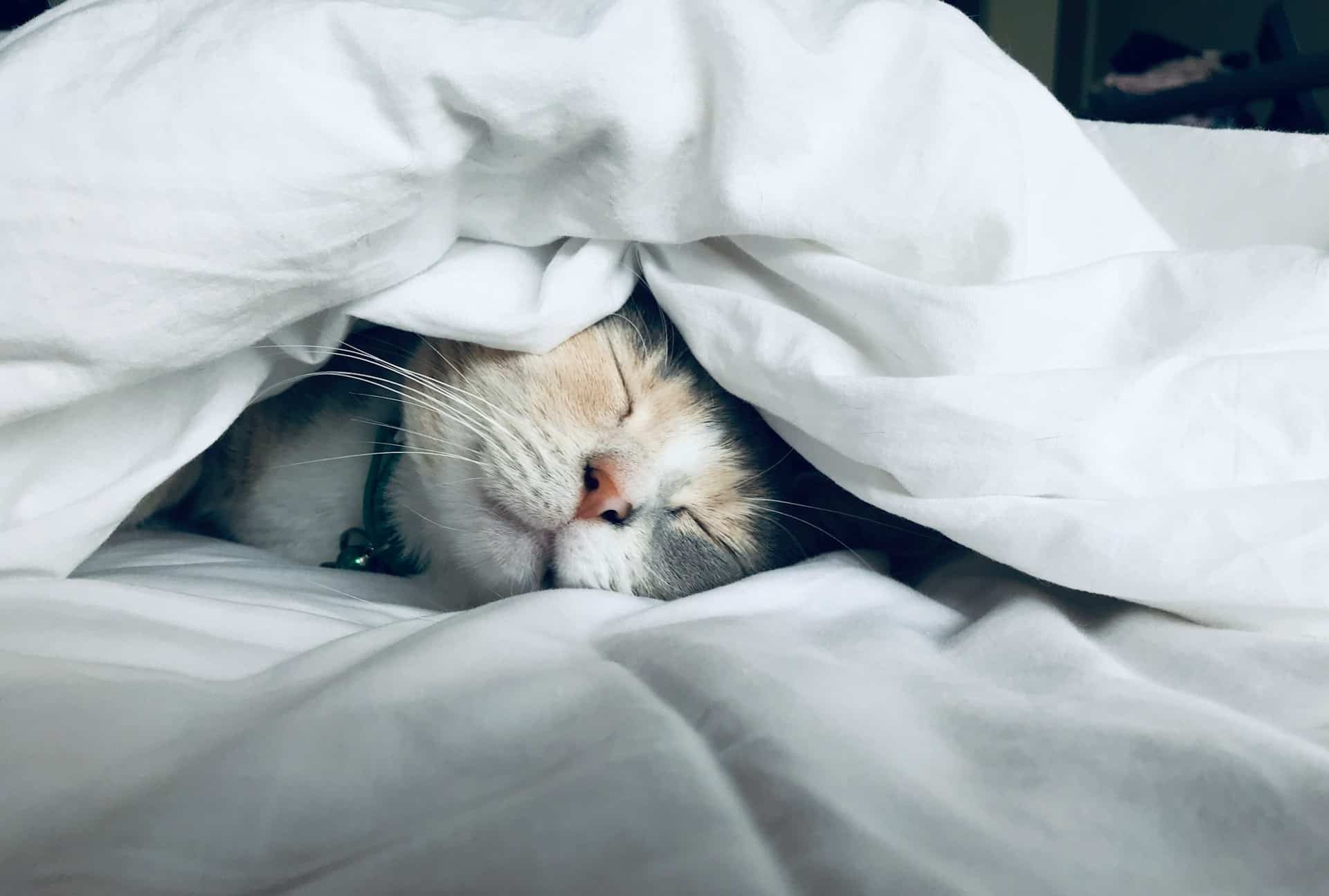How to Develop a Sleep Training Schedule for a Puppy that Suffers from Separation Anxiety?

When it comes to owning a dog, one of the most rewarding experiences is raising a puppy. But raising a puppy is not always an easy task, especially when anxiety issues like separation anxiety come into play. Separation anxiety in dogs is a serious condition that can lead to destructive behavior, excessive barking, and other problematic behaviors. One area that can particularly be affected is sleep. As a pet parent, you might find that your puppy struggles to sleep when left alone, which in turn affects the quality of sleep for everyone in the house.
In this article, we will provide you with a comprehensive guide on how to develop a sleep training schedule for your puppy suffering from separation anxiety. This guide has been designed to help you understand your pet’s anxiety, manage the issue, and create a healthy sleep schedule that will benefit you and your puppy.
Avez-vous vu cela : What Are the Best Water Toys for a Dog that Loves to Swim?
Understanding Separation Anxiety in Dogs
To effectively deal with your puppy’s separation anxiety, it’s crucial to understand what it is and what causes it. Separation anxiety is a condition where a dog exhibits distress and behavior problems when separated from its caretaker. This can occur when the dog is left alone in the house, or even just when the owner is not in the same room as the dog.
Separation anxiety can be caused by a variety of factors. Puppies are especially prone to separation anxiety because they are used to being part of a litter, and being alone is a new and scary experience for them. Other factors can include a change in schedule, moving to a new house, or even just a traumatic event.
Cela peut vous intéresser : How to Implement a Fitness Routine for an Overweight Dachshund?
Implementing a Sleep Training Schedule
Once you understand your puppy’s anxiety, the next step is to come up with a sleep training schedule. A consistent sleep schedule will help your puppy understand when it’s time to sleep, even if you’re not around. This will require patience and consistency from your end.
Start by creating a sleep-friendly environment for your puppy. This could involve setting up a comfortable crate, providing a favorite toy, or playing soothing sounds. It’s important that this sleep space is consistent and not used for other activities.
Next, establish a bedtime routine. This could start with a walk or some play time, followed by a calm down period, and then settling your puppy in their sleep space. Stick to this routine as closely as possible every night.
Lastly, gradually increase the amount of time that your puppy spends alone in their sleep space. Start with short periods and gradually increase the time. This will help your puppy get used to being alone and will reduce their separation anxiety.
Using Crate Training as a Tool
Crate training can be an effective tool to help manage your puppy’s separation anxiety and improve their sleep. Dogs are den animals and a crate can provide a sense of security and a safe place for your puppy to relax and sleep.
When crate training, it’s important to make the crate a positive and comforting place for your puppy. You can do this by placing comfortable bedding, favorite toys, and even treats in the crate. Never use the crate as a form of punishment.
Make sure to introduce the crate gradually. Start by leaving the door open and encouraging your puppy to explore the crate. Once your puppy is comfortable, you can start closing the door for short periods of time, gradually increasing the duration.
Managing Separation Anxiety During the Day
Managing your puppy’s separation anxiety during the day can also significantly improve their sleep behavior at night. There are several strategies that you can implement.
First, try to tire out your puppy during the day. Plenty of physical and mental stimulation will help ensure that your puppy is ready to sleep when bedtime comes around.
Second, practicing brief periods of separation throughout the day can help your puppy get used to being alone. This could involve stepping out of the room for a few minutes, or leaving your puppy at home while you run a short errand.
Lastly, consider using anxiety-reducing products such as anxiety wraps, calming diffusers, or even CBD oil for dogs. These products can help to soothe your puppy’s anxiety and make them feel more comfortable when they are alone.
By understanding your puppy’s separation anxiety and implementing a consistent sleep training schedule, you can greatly improve their sleep behavior and overall well-being. Remember, consistency and patience are key in this process. With time and effort, you can help your puppy overcome their anxiety and ensure they get the restful sleep they need.
Utilizing a Professional Dog Trainer
Professional dog trainers can be an invaluable resource when dealing with a puppy suffering from separation anxiety. These professionals have specialized knowledge and skills to effectively manage and alleviate anxiety in dogs, and can help formulate a customized sleep training schedule.
When searching for a dog trainer, it’s essential to find someone who is experienced in dealing with separation anxiety in dogs. They should employ positive reinforcement techniques and should be able to work closely with you to understand your puppy’s specific needs.
The trainer can also provide guidance on crate training. They can suggest the best type of crate to use, and the most effective way to introduce your puppy to the crate. Remember, the crate needs to be seen as a safe and comfortable place for your puppy, not a place of punishment.
Enlisting the help of a dog trainer doesn’t mean you’re failing as a pet parent. It’s about seeking expert guidance to ensure your puppy’s well-being and helping them overcome their separation anxiety in the most effective way possible.
Sleep Training and Separation Anxiety: Final Thoughts
Raising a puppy with separation anxiety can be challenging. However, with patience, consistency, and a comprehensive sleep training schedule, you can help your pet overcome this issue. It’s important to remember that each puppy is unique and what works for one might not work for another. Therefore, it’s crucial to pay close attention to your puppy’s behavior and adjust your strategies as needed.
Implementing a regular sleep schedule and using crate training are excellent techniques to help manage your puppy’s separation anxiety. Introducing periods of separation during the day and providing ample physical and mental stimulation can also greatly benefit your puppy’s overall well-being.
Enlisting the help of a professional dog trainer can provide valuable insights and guidance. Remember, it’s not about doing everything yourself – it’s about doing what is best for your puppy.
In conclusion, dealing with a puppy that suffers from separation anxiety can be a daunting task. But with understanding, persistence, and the right techniques, you can help your pet adjust, resulting in a happier, more relaxed dog and a more peaceful home environment. Ultimately, the goal is to ensure that your puppy feels safe and secure, even when separated from you. This will not only improve their sleep but also their quality of life.
